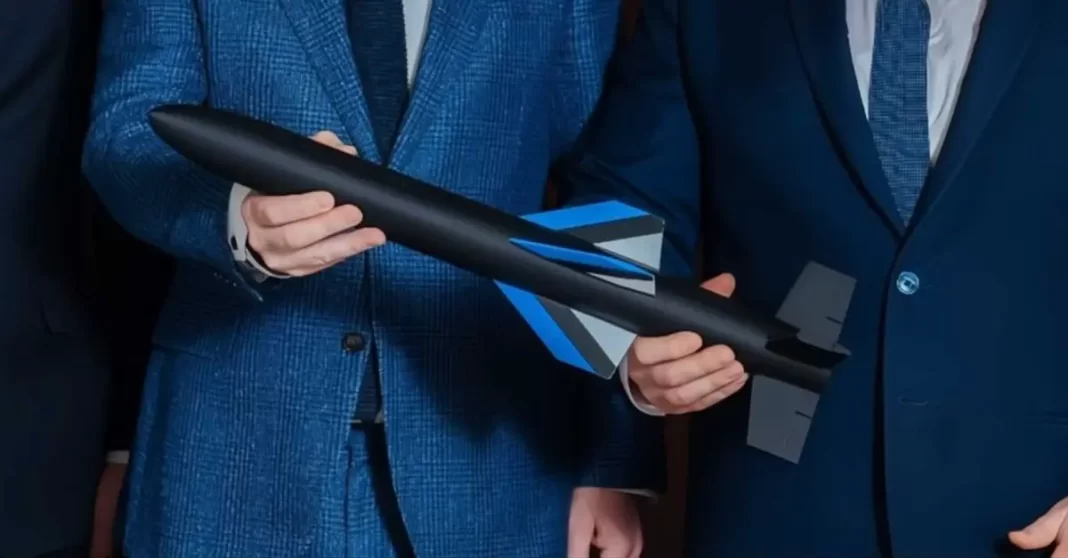Estonia’s new innovation is set to aid Ukraine in its battle against low-flying drones, a constant threat amidst the ongoing conflict with Russia. Frankenburg Technologies, a tech startup based in Estonia, has designed a miniature missile system named the Mark 1, specifically aimed at countering drones flying at lower altitudes. Ukraine will test this groundbreaking system in early 2025. The trial brings fresh hope to the war-torn nation.
Estonia’s Innovative Defense Solution
The Mark 1 anti-aircraft missile is being promoted as a cost-effective and efficient solution for counter-drone warfare. Unlike traditional missile systems, which are expensive and time-consuming to produce, the Mark 1 aims to significantly cut costs and production times. Using artificial intelligence (AI), the missile can swiftly identify and target incoming threats, enhancing its effectiveness against evolving drone technologies.
The missile can target drones at altitudes up to 2 kilometers (1.2 miles), making it a suitable weapon against low-flying threats. This is particularly critical as drones, such as the Iranian-made Shahed models used by Russian forces, often fly at low heights to evade ground defences.
Addressing Ukraine’s Drone Threat
Ukraine has faced relentless drone attacks, which have caused widespread damage to infrastructure and put civilian lives at risk. The Ukrainian military currently uses a mix of electronic warfare tools, jammers, and small arms to counter these drones. While these methods serve as critical defenses, they are not always reliable or sufficient against sophisticated drone tactics.
The Mark 1 missile offers a new line of defense, filling gaps in Ukraine’s current anti-drone strategies. Its lightweight design and affordability could allow widespread deployment, enhancing Ukraine’s ability to intercept drones in various locations.
A Collaborative Effort
Frankenburg Technologies has expanded its operations beyond Estonia, establishing offices in Latvia, Lithuania, and Ukraine, with plans to open another in the United Kingdom. The company has committed €50 million ($52 million) to advance rocket motor technologies. It invests heavily in research and development.
The British government has welcomed the company’s collaboration with local defense industries. Frankenburg sources a significant portion of its subsystems from the United Kingdom, bolstering ties between the two nations.
The Growing Demand for Anti-Drone Systems
The increasing use of drones in modern warfare has created a surge in demand for innovative counter-drone solutions. Several companies are competing in this space, offering compact and cost-effective systems. Among these are Lockheed Martin’s miniature hit-to-kill missiles and MBDA’s anti-drone technologies.
Frankenburg Technologies aims to set itself apart by focusing on affordability and rapid production. This approach could make advanced defense systems accessible to countries like Ukraine, which require effective but cost-sensitive solutions to counter persistent threats.
Estonia’s Key Milestone for Modern Warfare
The upcoming trial of the Mark 1 missile in Ukraine marks a significant milestone in modern warfare. If successful, the system could reshape how nations defend against drone threats. By leveraging AI and innovative engineering, Frankenburg Technologies demonstrates how technology can provide practical solutions to pressing security challenges.
Hope for the Future
The Mark 1 missile offers Ukraine a critical tool to defend itself in the ongoing conflict. With drones playing an increasingly central role in warfare, this innovation could help level the playing field for nations facing advanced threats.
As Frankenburg Technologies continues to refine its system, its work highlights the importance of international collaboration in addressing modern security challenges. By combining ingenuity with strategic partnerships. This Estonia’s startup could set a precedent for the future of defense innovation.

